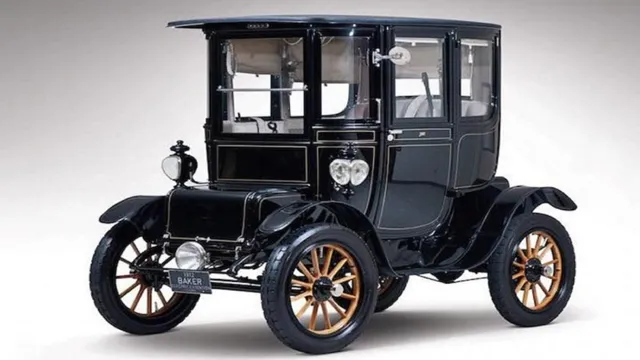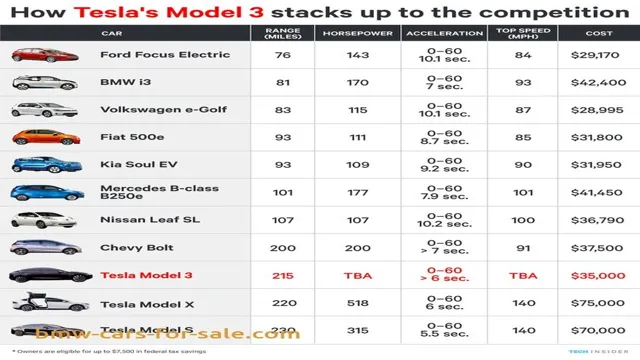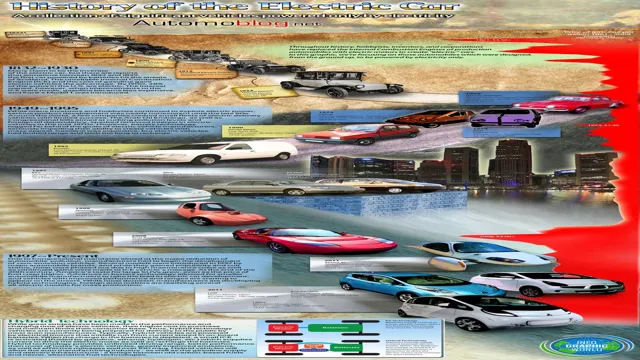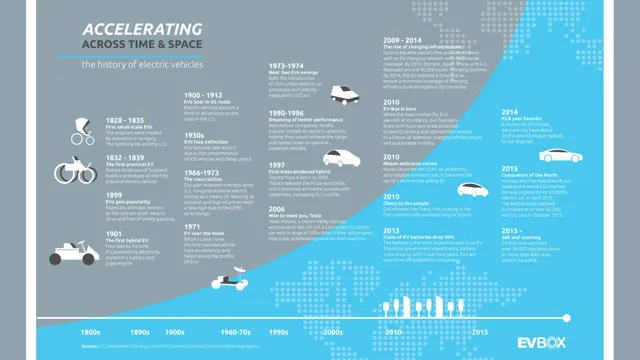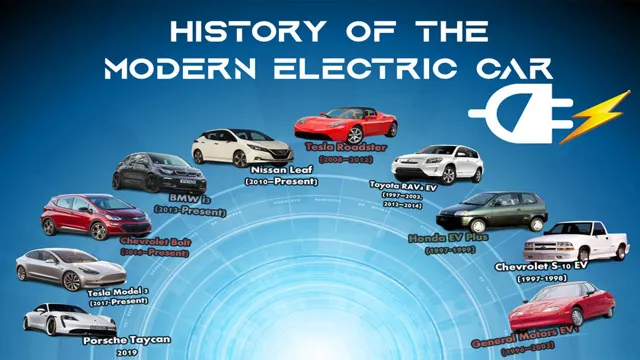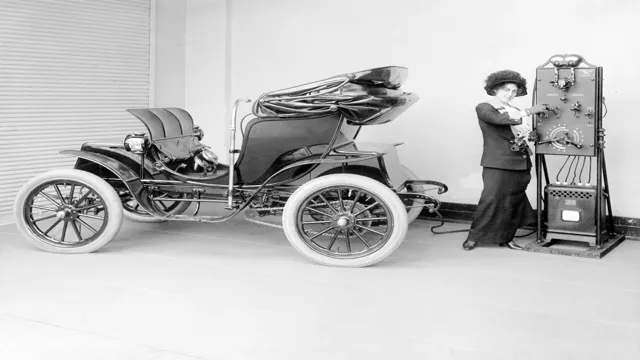Spark the Imagination of Your Kids with the Fascinating History of Electric Cars!
Electric cars have become increasingly popular in recent years, with many automakers releasing eco-friendly vehicles packed with cutting-edge technology. However, the history of electric cars extends back over a century to the late 1800s. Back then, electric cars were a common sight on the streets of major cities around the world.
Surprised? So were we! It’s fascinating to learn about the various milestone events and inventors that shaped the evolution of electric cars. In this article, we’ll take a deep dive into the history of electric cars and explore how these vehicles evolved to become the eco-friendly marvels that we see on the roads today. When was the first electric car invented? What made them so popular in the early days? Why did they fade into obscurity for so long? How did they make their comeback? We’ll answer all these questions and much more, providing you with a comprehensive overview of the fascinating history of electric cars! Whether you’re an electric car enthusiast or a curious kid, the story of electric cars is sure to grab your attention and keep you engrossed until the very end.
From the early pioneers of electric transport to the present-day tech giants revolutionizing the automotive industry, there’s something for everyone in this enthralling tale. So buckle up and get ready to take a ride through the exciting history of electric cars!
Introduction
Electric cars have been around for over a century, but it wasn’t until recently that they began to gain popularity as a sustainable option for transportation. For kids who are interested in the history of electric cars, there is much to learn about their evolution and development throughout the years. From the early prototypes in the 19th century to the modern electric vehicles of today, this technology has come a long way in reducing emissions and providing a more eco-friendly form of transport.
The rise of electric cars is attributed to the need for alternative energy sources and the growing concern over climate change. As electric cars become more affordable and accessible, we can look forward to a future where they are the preferred choice for transportation. So let’s dive in and learn about the fascinating history of electric cars!
What are Electric Cars?
Electric cars are vehicles that run on rechargeable batteries instead of gasoline or diesel fuel. These cars use electric motors to power their wheels, making them eco-friendly and sustainable. They offer a range of benefits such as lower fuel costs, zero emissions, reduced carbon footprint, and quiet operation.
Moreover, they are also equipped with advanced features such as regenerative braking and smart charging capabilities. While the concept of electric cars is not new, recent advancements in technology have made them more accessible and practical for everyday use. With the increasing demand for sustainable transportation, electric cars are becoming an attractive option for individuals and businesses alike.
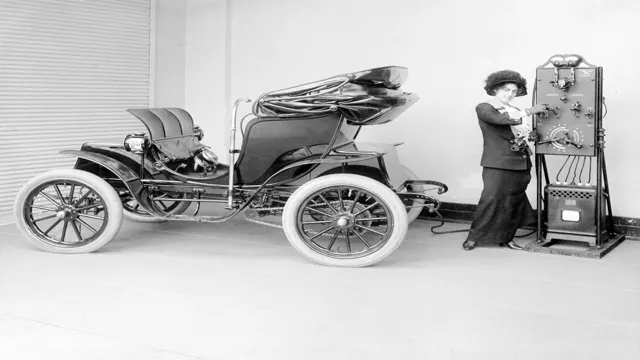
The Early Days of Electric Cars
Electric Cars If you think electric cars are a new concept, think again. The early days of electric cars date back to the late 19th century, when inventors were experimenting with battery-powered vehicles. One such inventor was Thomas Davenport, who built a small electric car in 183
However, it wasn’t until the 1880s that electric cars began to gain popularity. At that time, they were considered a serious competitor to gasoline-powered vehicles. In fact, at the turn of the 20th century, electric cars made up a third of all vehicles on the road.
But as Ford introduced the Model T in 1908, with its lower price point and wider availability, gasoline-powered cars quickly became the preferred option. Despite this setback, the early days of electric cars are a fascinating history lesson in innovation and experimentation.
The Rise of Electric Cars
Looking back, the history of electric cars for kids can be traced as far back as the 1800s. However, with the rise of gasoline-powered cars in the early 1900s, electric cars became a footnote in automotive history. It wasn’t until the 1990s that a resurgence in electric vehicle development occurred, with companies like GM and Toyota introducing electric cars to the market.
It wasn’t until Tesla’s creation of the Roadster in 2008 that electric cars really gained traction. Since then, countries around the world have been implementing policies to encourage the adoption of electric cars to decrease carbon emissions and improve air quality. Today, electric cars have become increasingly popular due to their environmentally-friendly nature and impressive performance capabilities.
It’s exciting to see how far electric vehicles have come and how they continue to evolve. Who knows what the future of transportation will hold?
Electric Cars in the 21st Century
Electric Cars Electric cars are increasingly becoming popular in the 21st century due to advancements in technology and concerns about the environment. With the rise of global warming and climate change, people are now more conscious of the impact of various human activities on the environment. Electric cars are seen as an alternative to traditional vehicles that are powered by fossil fuels, which emit harmful gases that contribute to environmental pollution.
Electric cars are powered by an electric motor, which runs on electricity stored in a battery. Unlike gasoline engines, electric cars produce zero emissions, which means they are more environmentally friendly than traditional vehicles. They also have lower operating costs, as electricity is cheaper than gasoline, and they require less maintenance.
The popularity of electric cars has been boosted in recent years by the introduction of affordable electric vehicle models, such as the Nissan Leaf and the Tesla Model Governments are also encouraging the use of electric cars by providing tax incentives and subsidies to electric car buyers. With the increasing availability of charging stations and the development of longer-lasting batteries, electric cars are set to become a common sight on our roads in the near future.
In conclusion, electric cars are gaining traction in the 21st century as people become more aware of the environmental impact of traditional cars, and as technology advances to make electric cars more practical and affordable. With their lower emissions, lower operating costs, and convenience, electric cars are poised to play a major role in the future of transportation.
How Electric Cars Work
The rise of electric cars has been a gradual yet steady one. With more and more people becoming environmentally conscious and more aware of the impact of carbon emissions on our planet, electric cars have become an increasingly popular choice for those looking to reduce their carbon footprint. These cars work on a rechargeable battery that powers an electric motor, which in turn drives the wheels.
The battery is charged via an external power source, such as a charging station or a power outlet, making it a convenient and accessible option. In addition to being eco-friendly, electric cars are also incredibly efficient, as they use energy much more efficiently than traditional gasoline-powered vehicles. With the continued development of batteries and advancements in technology, electric cars are only going to become more common in the future.
Advantages and Disadvantages of Electric Cars
The rise of electric cars is no longer a surprise. With the growing concern for the environment, many people are choosing electric cars over traditional gas-powered vehicles. The advantages of owning an electric car are numerous; they are eco-friendly, have low operating costs, making them cheaper to maintain, and eliminates the need for gasoline, saving you money at the pump.
Additionally, electric cars have a quiet ride and high performance capabilities – a common misconception is that electric cars are slow, but that couldn’t be further from the truth! While there are many advantages, there are disadvantages to consider. One of the main downsides is the charging time required to recharge the car’s battery. Also, electric cars are often more expensive initially, meaning that their overall cost of ownership is higher, but their cheaper operating costs will help offset this in the long run.
Despite these disadvantages, the rise of electric cars seems inevitable – it’s no longer a matter of if but when we will all be driving electric cars.
The Future of Electric Cars
Electric cars have a long and fascinating history, dating back to the early days of automobiles. In fact, the first electric car was invented in the 1800s! However, for many years, gasoline-powered cars were more popular, due to their longer range and faster speeds. It wasn’t until recent years that electric cars have started to make a comeback, thanks to advances in technology that have made them more practical and affordable.
Today, electric cars are becoming more and more common, as people look for ways to reduce their carbon footprint and save money on gas. For kids who are interested in the history of electric cars, there are plenty of fascinating stories to explore, including the early pioneers who experimented with electric vehicles, and the modern-day engineers who are pushing the boundaries of what’s possible.
Innovations in Electric Car Technology
Electric car technology is rapidly advancing, revolutionizing the way we think about transportation. These innovations are leading to more environmentally friendly options for commuting and reducing our carbon footprint. The future of electric cars promises even more exciting developments, including longer-lasting batteries, faster charging times, and improved overall performance.
With the advancement of electric car technology, we may soon see a shift away from traditional gasoline-powered vehicles, as electric cars become more affordable and accessible. Who wouldn’t want to save money on gas while also doing their part to save the planet? With electric vehicles rapidly gaining popularity and high demand, it’s clear that this is the beginning of a transformative shift towards a greener future.
What’s Next for Electric Cars?
Electric Cars The future of electric cars looks bright, with more and more consumers opting to go green and choose electric vehicles over traditional gas-powered ones. With advancements in battery technology, charging infrastructure, and range capabilities, electric cars are becoming more accessible and convenient for everyday use. Car manufacturers are also investing in creating electric models, ensuring that there will be a wide range of options available to consumers in the future.
Additionally, as governments around the world push for more environmentally friendly transportation solutions, we can expect to see more incentives and subsidies for electric cars, making them even more affordable. Overall, the future of electric cars is promising, and it’s exciting to see how technology continues to evolve to meet the growing demand for cleaner and sustainable transportation options.
Conclusion
And so, my electrically-energized companions, we have come to the end of our journey through the history of electric cars for kids. From their humble beginnings as mere toys, to their rise as eco-friendly alternatives to traditional cars, these vehicles have certainly come a long way. Who knows what the future holds for electric cars? Perhaps we’ll see them zooming around on Mars! Until then, remember this: just like the batteries in our electric cars, the possibilities are endless.
Keep exploring, keep innovating, and keep driving towards a brighter and greener future. The road may be long, but with electric cars, the journey is always electrifying!”
FAQs
What is an electric car?
An electric car is a vehicle that runs entirely on electricity, instead of internal combustion like gasoline or diesel engines.
When were electric cars invented?
The first electric car was invented in the late 1800s, but it wasn’t until the 1990s that they became more commonly known.
How do electric cars work?
Electric cars use rechargeable battery packs to power an electric motor, which propels the car forward.
Are electric cars better for the environment than gas cars?
Yes, electric cars are much better for the environment than gas cars. They produce no emissions or pollutants, and they use renewable energy sources.
How far can electric cars go on a single charge?
The range of an electric car depends on the model and the size of the battery pack, but many modern electric cars can travel up to 200-300 miles on a single charge.

